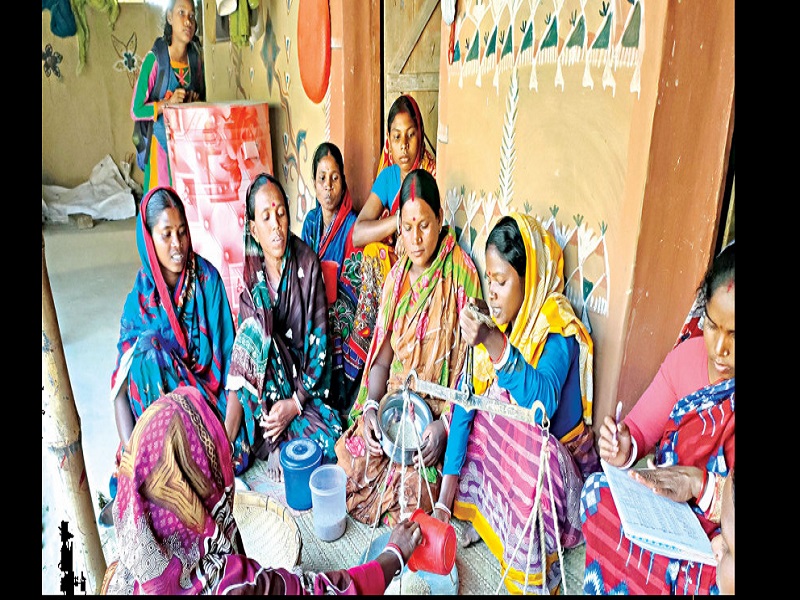Around 5,000 women, mostly from the minority communities, are finding self-sufficiency with every passing day. Under an initiative formally known as "Food Bank", the women set aside a fist-sized portion of rice every day. With some logistic support and supervision from national and international NGOs, this Musti Chal (fistful of rice) practice is helping out women at 90 villages in two upazilas under Naogaon -- Sahapar and Niamatpur -- since 2015. After enough rice is saved, the women then sell it and use the money for income-generating activities, like buying cattle, cultivating fish in Khas ponds, running community businesses and helping people from their communities. Many of these landless women have also bought land, opened shops, started business, bought land for funeral rites and even built their own temples.
In a recent visit to Niamatpur and Sapahar upazila, this correspondent found that in the past, the women used to undertake the same activities by taking out loans from local Mahajans, entrepreneurs, village arbitrators, NGOs, local clubs and more at higher rates. But as Musti Chal has gained in prominence, they have stopped going for such expensive loans. This is how the process works: a group of 20-30 women band together and set aside a fistful of rice whenever they cook a meal for seven days. The rice is kept in pots, which is then gathered inside a big drum. At the conclusion of the week, they sell the rice and use the money to fund their income-generating activities of choice.
In Niamatpur's Kamaspur village, 30 women have been collecting Musti Chal for the last seven years. So far, they have sold rice worth Tk 1 lakh and are now cultivating fish in three Khas ponds, rearing three cows and helping the people of the village with the money.
Maniza (30), of Kulmodanga village under Sapahar upazila, bought six decimals of land by taking money from their 30 member-group practicing Musti Chal. Like Maniza, there are 14 landless families who bought at least five bighas of land in the upazila by getting financial help from their Musti Chal-collecting groups. One of the groups bought a shop at the Sapahar new market worth of Tk five lakh, said Shamsul Haque, senior programme officer of the Borendro Development Organization (BDO), a local NGO which monitor the groups.
This economic empowerment is also helping the women grow in confidence. In the past, many of them were shy to speak publicly. But after finding self-sufficiency through the project, they're growing in power. Five women from these are contesting the ongoing UP elections as independent candidates.
"When the Covid started in Bangladesh, many of our neighbours were out of work. Back then we lent them rice from the food bank," said Minoti Pahan of Sirajpur village.
Rekha Rani Ray (30), of same village, said, "The best part about Musti Chal is that if anyone in the village runs out of rice, they can always get it from us and return it later."
There are three NGOs; Action Aid Bangladesh, Manusher Jonno Foundation (MJF) and Andheri HILFE which are running three projects; CLIMATE, REEAL and SOLID, to supervise the Musti Chal initiatives.
Source: The Daily Star0 COMMENTS



